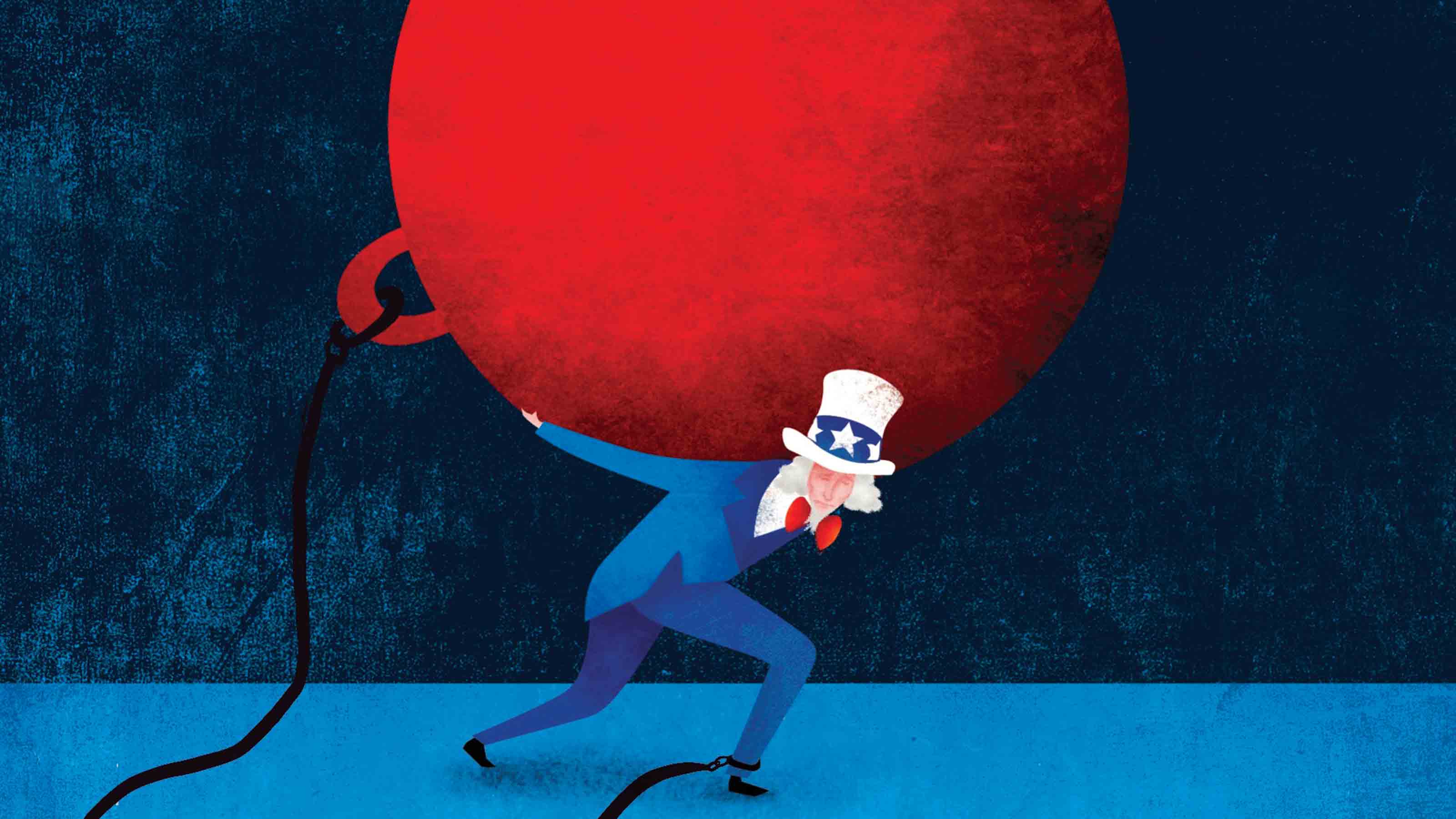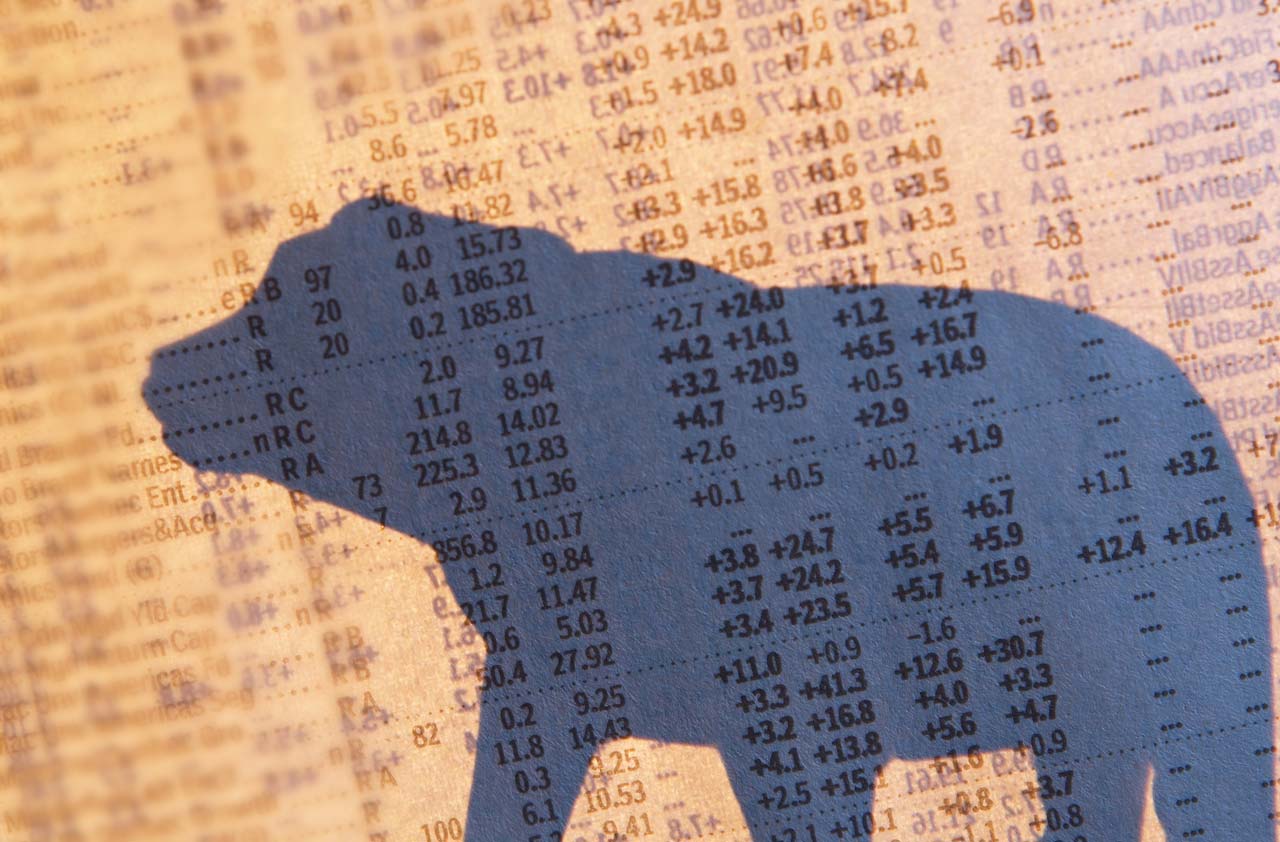China Likely to Hold U.S. Investments Despite Credit-Rating Downgrade
China won’t shun U.S. Treasury bonds, but Congress’ handling of the debt ceiling legislation—and the downgrading of America’s credit rating—is fanning Beijing’s discontent over U.S. economic policies.
Profit and prosper with the best of Kiplinger's advice on investing, taxes, retirement, personal finance and much more. Delivered daily. Enter your email in the box and click Sign Me Up.
You are now subscribed
Your newsletter sign-up was successful
Want to add more newsletters?

Delivered daily
Kiplinger Today
Profit and prosper with the best of Kiplinger's advice on investing, taxes, retirement, personal finance and much more delivered daily. Smart money moves start here.

Sent five days a week
Kiplinger A Step Ahead
Get practical help to make better financial decisions in your everyday life, from spending to savings on top deals.

Delivered daily
Kiplinger Closing Bell
Get today's biggest financial and investing headlines delivered to your inbox every day the U.S. stock market is open.

Sent twice a week
Kiplinger Adviser Intel
Financial pros across the country share best practices and fresh tactics to preserve and grow your wealth.

Delivered weekly
Kiplinger Tax Tips
Trim your federal and state tax bills with practical tax-planning and tax-cutting strategies.

Sent twice a week
Kiplinger Retirement Tips
Your twice-a-week guide to planning and enjoying a financially secure and richly rewarding retirement

Sent bimonthly.
Kiplinger Adviser Angle
Insights for advisers, wealth managers and other financial professionals.

Sent twice a week
Kiplinger Investing Weekly
Your twice-a-week roundup of promising stocks, funds, companies and industries you should consider, ones you should avoid, and why.

Sent weekly for six weeks
Kiplinger Invest for Retirement
Your step-by-step six-part series on how to invest for retirement, from devising a successful strategy to exactly which investments to choose.
China used Friday’s downgrading of U.S. debt to renew its complaints about fiscal policy and express growing disillusionment with the American economic model. But it isn’t likely to cut its holdings or purchases much very soon.
Breaking a long silence over Congress’ gridlock on how to deal with the nation’s debt problem, top Chinese economic policymakers have publicly criticized the U.S. over the past few days, warning that Washington must sharply reduce its foreign debt and that America must live within its means.
“The U.S. government has to come to terms with the painful fact that the good old days when it could just borrow its way out of messes of its own making are finally gone," wrote Xinhua, the state-run news service on Saturday, after Standard & Poor’s announced it was lowering its AAA rating for U.S. Treasury debt one notch to AA+.
From just $107.88 $24.99 for Kiplinger Personal Finance
Become a smarter, better informed investor. Subscribe from just $107.88 $24.99, plus get up to 4 Special Issues

Sign up for Kiplinger’s Free Newsletters
Profit and prosper with the best of expert advice on investing, taxes, retirement, personal finance and more - straight to your e-mail.
Profit and prosper with the best of expert advice - straight to your e-mail.
China is one of America’s most important economic partners. It already holds some $2 trillion in Treasury bonds and other government-backed securities, making it the largest foreign holder of American debt. It has amassed $3.2 trillion in foreign exchange reserves, most of it in U.S. dollars. And it’s the U.S.’ second-largest export market.
Beijing’s relationship with Washington worsened markedly after the onset of the 2008-2009 recession. After openly admiring America’s economic leadership before, top Chinese officials clearly were appalled at the collapse of the U.S. financial system in late 2007—and blamed Washington policymakers for letting it happen.
The resentment quickly spread to other foreign policy issues. China adopted a more belligerent tone in its U.S. dealings, excluded President Obama from a key negotiation at the 2009 Copenhagen climate change conference, broke off U.S.-Chinese military ties and lashed out at America’s prosecution of routine trade complaints.
This time, Beijing had been quiet during the first weeks of congressional wrangling over the debt ceiling. Partly, it was to protect China’s own financial holdings. If China had openly pulled away from its U.S. investments in the face of a possible default, it could have sparked a global run from U.S. securities, devaluing China’s own portfolio.
For now, there’s little likelihood that China will start dumping its holdings of Treasury bonds—or turn sour in its dealings with the U.S. on other key foreign policy issues—even if the new congressional budget compromise fizzles or other credit rating agencies join S&P in downgrading America’s credit rating.
For one thing, a Chinese flight from U.S. securities would quickly devalue China’s own cache of Treasury bonds and dollar holdings. Better to wait until the expected turmoil in global financial markets plays itself out and see what the situation in the global markets looks like.
Even if the U.S. fiscal situation continues to deteriorate, China has nowhere else to go to invest its huge hoard of dollars. No other country has financial markets that are as large, as deep or as liquid as those of the U.S. And Europe and Japan are undergoing tough times as well.
Although China has been grousing for years that U.S. financial markets are too volatile and that it needs to diversify its dollar-denominated portfolios, so far there’s been no evidence that China has begun pulling away from U.S. securities. This past week’s criticisms from China were relatively mild, almost pro forma in their wording.
Moreover, the overall relationship between the U.S. and China is far more stable than it was in late 2007. That makes it unlikely that China’s frustration over the debt ceiling outcome will spill over into broader foreign policy issues, such as the geopolitical rivalry or economic and trade disputes.
Although there’s still a good bit of uncertainty over the role that each country will play as a power in Asia, the two have begun working together again to help restart talks with North Korea. They’ve eased tensions over several key trade issues. And they’ve resumed contacts between their respective military high commands.
With a new regime slated to assume power next year, the outgoing Chinese government doesn’t want to stir up questions at home about why its own top policymakers didn’t see the American debt ceiling debacle coming (and why China continued to invest in dollar-denominated securities).
China also has a full platter of problems to worry about at home. Inflation has become tricky to manage and a volatile political problem. The economy is slowing. And there is growing civil unrest in the far western regions of China that is a major challenge in the eyes of Communist Party leaders.
So, while China won’t be abandoning Treasury bonds anytime soon, the past week’s spectacle in Washington and Friday’s unprecedented downgrading of the U.S.’ AAA credit rating are likely to intensify the feeling among some Chinese that the country should reduce its current dependence on the U.S. and go its own way more often.
That won’t be a plus for the U.S., no matter what happens in the markets.
Profit and prosper with the best of Kiplinger's advice on investing, taxes, retirement, personal finance and much more. Delivered daily. Enter your email in the box and click Sign Me Up.

-
 Nasdaq Leads a Rocky Risk-On Rally: Stock Market Today
Nasdaq Leads a Rocky Risk-On Rally: Stock Market TodayAnother worrying bout of late-session weakness couldn't take down the main equity indexes on Wednesday.
-
 Quiz: Do You Know How to Avoid the "Medigap Trap?"
Quiz: Do You Know How to Avoid the "Medigap Trap?"Quiz Test your basic knowledge of the "Medigap Trap" in our quick quiz.
-
 5 Top Tax-Efficient Mutual Funds for Smarter Investing
5 Top Tax-Efficient Mutual Funds for Smarter InvestingMutual funds are many things, but "tax-friendly" usually isn't one of them. These are the exceptions.
-
 Federal Debt: A Heavy Load
Federal Debt: A Heavy LoadEconomic Forecasts The debt continues to grow, but record-low interest rates could ease the long-term damage.
-
 Is a Recession Imminent?
Is a Recession Imminent?Economic Forecasts Shoppers will have to carry the load for now because weak business investment shows no sign of perking up anytime soon. Odds are, they’ll be able to.
-
 3 Factors That Could Drive the Next Recession
3 Factors That Could Drive the Next RecessionEconomic Forecasts The economy is humming along nicely, but how long can the good times continue?
-
 Savers Feel the Pain of Low Interest Rates
Savers Feel the Pain of Low Interest RatesMaking Your Money Last The Fed's low-rate policy has cost U.S. savers $470 billion.
-
 Is the Stock Market Signaling a Recession Ahead?
Is the Stock Market Signaling a Recession Ahead?Economic Forecasts Sinking stocks don't necessarily presage an economic downturn.
-
 U.S. Manufacturers on a Roll
U.S. Manufacturers on a RollEconomic Forecasts Cheap energy and an improving economy will keep manufacturing growing at a better-than-average rate.
-
Next Rise in Interest Rates Will Come in 2015
business Even when rates finally do head up, they won't zoom out of control. A progressive series of stair steps is more like it.
-
Fracking Boom Spells New Tech Investments
Economic Forecasts Solutions to energy and safety concerns will be in hot demand.
